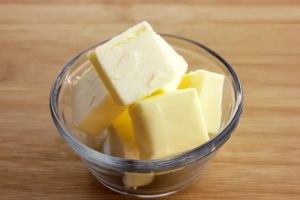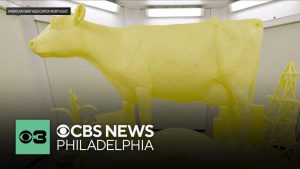
Nearly 80,000lbs of butter is being recalled due to potential missing allergy statements on the packaging, in an incident that the U.S. Food and Drug Administration (FDA) has classed as its second highest risk level.
Continental Dairy Facilities Southwest LLC voluntarily initiated a recall of two butter products on October 11: Kirkland Signature Unsalted Sweet Cream Butter and Kirkland Signature Salted Sweet Cream Butter, both 16oz packets containing four sticks of butter.
On Thursday, November 7, the FDA categorized this recall as a Class II, meaning: “a situation in which use of or exposure to a violative product may cause temporary or medically reversible adverse health consequences or where the probability of serious adverse health consequences is remote.”
The butter was distributed and sold in Texas, where Continental Dairy Facilities Southwest is based.
For both products, the packaging lists cream as an ingredient, but may be missing the allergen statement: “Contains Milk.”
This recall applies to 46,800lbs of unsalted butter and 32,400lbs of salted butter with “best by” dates between February 22, 2025 and March 23, 2025.
Butter Recalled Due to Possible Missing Allergen Labelling
The products were recalled because they may not display a “Contains Milk” statement.
| Kirkland Signature Unsalted Sweet Cream Butter, 16oz | 96619-38496 | Lot: 2424091 Best By: 02/22/2025Lot: 2424111 Best By: 02/23/2025 Lot: 2426891 Lot: 2426991 |
Class II |
|---|---|---|---|
| Kirkland Signature Salted Sweet Cream Butter, 16oz | 96619-38488 | Lot: 2424191 Best By: 02/23/2025Lot: 2427591 Best By: 03/29/2025 |
Class II |
Milk is one of the eight major allergens. It is especially common among children and usually occurs soon after consuming milk.
Symptoms may be mild or severe, including digestive problems, itching around the mouth, vomiting, wheezing, hives, swelling of the lips or throat, a runny nose or watery eyes.
In some cases, milk allergies can cause anaphylaxis, which is a life-threatening allergic reaction involving constriction of the airways, swelling of the throat, difficulty breathing, a drop in blood pressure, dizziness and a loss of consciousness.
In the case of anaphylaxis, it is important to administer a shot of epinephrine, such as with an Epi-pen, and go to the emergency room.
Other people who are not allergic to milk may still be intolerant, in which case a non-immune reaction could cause digestive problems such as gas, bloating or diarrhea after consuming food that contains milk.
However, while there are serious potential consequences to someone with a milk allergy consuming the recalled butter, the FDA’s classification means “the probability of serious adverse health consequences is remote,” presumably because it is well known that butter contains milk.
You can now read the most important #news on #eDairyNews #Whatsapp channels!!!
🇺🇸 eDairy News INGLÊS: https://whatsapp.com/channel/0029VaKsjzGDTkJyIN6hcP1K























